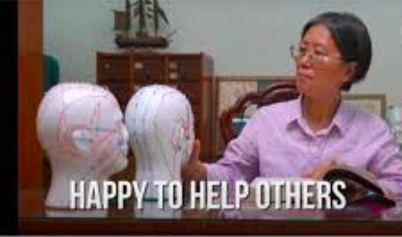Trending Stories
The Unseen Epidemic: America’s Looming Mental Health Crisis”

The Unseen Epidemic: America’s Looming Mental Health Crisis
The newest magnet for our attention?
A tantalizing reality TV dating show labeled “The Ultimatum: Queer Love.” Dipped in the potpourri of queer love and romantic chaos, this show promises an undeniably attractive buffet of women bracing for their past relationships to foster new ones.
It’s a rare chance to showcase lesbian love in mainstream media, an exciting prospect for those seeking on-screen representation and a dash of baked potato comfort in our living room.
However, does “The Ultimatum” meet the hyped expectations?
Well, let’s just say the answer sits somewhere on the fence.
A Disappointing Choice of Host?
In the hierarchy of queer love and representation, it feels intuitive to position a gay woman as the host of a queer-centric dating show, doesn’t it
Apparently, Netflix thought otherwise. The streaming giant assigned a straight woman as the figurehead, making her heterosexuality abundantly clear in the show’s opening moments—an off-kilter choice that leaves a puzzling aftertaste.
The Therapy Speak Epidemic
Next up in the disappointment lineup is the omnipresence of “therapy speak”.
Before we proceed, let’s clarify: therapy in itself is a valuable tool for personal development and mental health—it absolutely deserves widespread acceptance. Yet, the overdose of psychobabble, as observed in “The Ultimatum,” raises questions about its potential downsides.
Notably, there’s a growing feeling that an excess of therapy speaks, particularly in American culture, is acting as an escape route for narcissism.
A flood of recent articles supports this stance, exploring how psychobabble’s proliferation might be nurturing a more self-absorbed society.
The cast of “The Ultimatum” appears to dance to this rhythm. Peppered between proclamations of mutual support, there’s constant chatter about being “triggered” or the need to prioritize personal needs—an undercurrent of ego-centric dialogue. Isn’t it time to peel off the therapeutic jargon and admit to self-interest without resorting to psych-speak?
Invitation for Reflection
This observation isn’t an invitation to ignite the fire of criticism but a call to consider the potential repercussions of excessive therapy speak.
Let’s ensure that our pursuit of emotional enlightenment doesn’t become an enabler of disguised narcissism. After all, creating a safe space shouldn’t come at the expense of honest, raw human interactions.
The Impact of Therapy Speak on Interpersonal Communication
The frequent references to therapy spoken in shows like “The Ultimatum” can blur the boundaries of personal introspection and naked self-centeredness.
Amid a string of words like “triggered,” “emotional space,” and “self-care,” the line between empathetic understanding and indulging in self-absorption becomes hazy.
These linguistic patterns may have originated from therapeutic settings, but their adoption into everyday conversation calls for a closer look at their societal implications.
A healthy dosage of introspection is crucial for personal growth; however, using psychobabble as a shield for narcissistic tendencies distorts the genuine purpose of therapy.
A Broader Perspective on Therapy Culture
American pop culture seems to be experiencing a therapy overdose, with psychological terminologies often used as excuses for problematic behavior. This trend is not confined to reality shows—it’s finding its way into social media, personal blogs, podcasts, and even daily conversations.
The propagation of therapy speaks could potentially dilute the gravity of psychological issues, commodifying them into trendy buzzwords.
The trivialization of these terms can also obstruct people’s understanding of their genuine emotional needs and potentially downplay the seriousness of mental health concerns.
The Importance of Striking a Balance
The cultural infiltration of therapy speaks, therefore, warrants a thoughtful discussion. Let’s cherish the therapy culture for its contributions toward mental health normalization but remain vigilant against its misuse.
Let’s advocate for self-care and emotional exploration without letting these become camouflage for unhealthy narcissism.
The answer might lie in striving for a delicate balance: normalizing therapeutic language without breeding self-absorption. In the end, it’s about nurturing a society that encourages empathy and self-awareness, while discouraging narcissistic behavior disguised as self-love.
Conclusion:
Shows like “The Ultimatum” offer us a mirror to our societal norms and cultural tendencies. As we enjoy the drama and excitement these shows bring into our living rooms, it’s equally essential to contemplate the messages they’re unconsciously reinforcing.
Remember, creating a safe emotional space starts with a balanced approach to therapy and self-awareness. And, that’s an ultimatum we should all be striving towards.
Trending Stories
Sister Regina Liu: Empowering Health Through Acupuncture

Sister Regina Liu: Empowering Health Through Acupuncture
In the bustling world of healthcare, Sister Regina Liu stands out as a beacon of holistic healing. Her journey into the world of acupuncture is not only inspiring but also transformative for the countless individuals she has treated.
Through her dedication, Sister Regina has brought traditional Chinese medicine to the forefront, offering an alternative and complementary approach to modern medical practices.
The Journey of Sister Regina Liu
Sister Regina Liu’s path to becoming a renowned acupuncturist began with her deep-rooted interest in holistic health. Born into a family that valued traditional Chinese medicine, Sister Regina was exposed to the benefits of acupuncture from a young age. Her early fascination turned into a lifelong passion as she pursued formal education and training in the field.
Acupuncture: Bridging Ancient Wisdom and Modern Health
Acupuncture, a practice with origins in ancient China, involves inserting thin needles into specific points on the body to balance the flow of energy or “qi.” Sister Regina Liu has mastered this ancient art, using it to address a wide range of health issues.
From chronic pain to stress management, her expertise has provided relief to many who had exhausted conventional treatment options.
Impact on Community Health
Sister Regina’s impact extends beyond individual treatments. She has been instrumental in educating the community about the benefits of acupuncture, breaking down misconceptions, and making the practice more accessible.
Her workshops and seminars have enlightened many about the holistic approach to health, emphasizing the interconnectedness of body, mind, and spirit.
Success Stories and Testimonials
The success stories of Sister Regina’s patients are a testament to her skill and dedication. Many individuals who had lost hope found solace in her treatments.
For instance, Maria, a long-time sufferer of migraines, experienced significant relief after just a few sessions with Sister Regina. Her story is just one of many that highlight the transformative power of acupuncture under Sister Regina’s care.
Challenges and Triumphs
Like any journey, Sister Regina’s path was not without challenges. Integrating acupuncture into mainstream healthcare faced resistance initially.
However, her perseverance and the undeniable results of her treatments gradually won over skeptics. Today, Sister Regina is not only respected in the field of acupuncture but also in the broader medical community.
The Science Behind Acupuncture
While acupuncture is rooted in ancient practices, modern science has begun to unravel the mechanisms behind its effectiveness. Studies have shown that acupuncture can stimulate the release of endorphins, the body’s natural painkillers, and improve blood circulation.
These scientific validations have further cemented acupuncture’s place in contemporary healthcare, thanks in part to advocates like Sister Regina Liu.
Acupuncture in Modern Healthcare
Sister Regina’s work exemplifies how traditional practices can complement modern medicine. Hospitals and clinics increasingly incorporate acupuncture into their treatment plans, recognizing its benefits in pain management, mental health, and overall well-being. This integration signifies a broader acceptance and understanding of holistic health practices.
Future Vision
Looking ahead, Sister Regina Liu envisions a future where acupuncture and traditional Chinese medicine are fully integrated into the global healthcare system. She continues to advocate for research, education, and policy changes that support the inclusion of holistic practices in mainstream medicine.
How to Get Started with Acupuncture
For those new to acupuncture, Sister Regina offers practical advice on getting started. She recommends finding a certified acupuncturist, understanding the treatment process, and maintaining an open mind. Her guidance helps demystify acupuncture, making it more approachable for newcomers.
Conclusion
Sister Regina Liu’s journey in empowering health through acupuncture is a remarkable tale of dedication, resilience, and success. Her contributions have not only alleviated individual suffering but also enriched the broader understanding of holistic health. As acupuncture continues to gain recognition, Sister Regina’s legacy will undoubtedly inspire future generations of healers.
FAQs
1. What conditions can acupuncture treat?
Acupuncture can address various conditions, including chronic pain, migraines, stress, anxiety, digestive issues, and more. It is also used to support overall wellness and balance.
2. Is acupuncture safe?
Yes, when performed by a certified and experienced acupuncturist, acupuncture is safe. It involves using sterile, single-use needles and adhering to proper hygiene practices.
3. How many sessions are needed to see results?
The number of sessions varies depending on the condition and individual response. Some may experience relief after one session, while others may need multiple treatments.
4. Does acupuncture hurt?
Acupuncture needles are very thin, and most people feel minimal to no discomfort. Some may feel a slight tingling or warmth at the needle site.
5. How do I find a qualified acupuncturist?
Look for acupuncturists who are certified by recognized professional organizations and have positive patient reviews. Personal recommendations and consultations can also help in making an informed choice.
References
Trending Stories
In 2 Shape Gym Unveils Major Expansion in Stourport
Trending Stories
9 Reasons Why In-Person Friendships Are Irreplaceable
-

 Trending Stories1 year ago
Trending Stories1 year agoCDC: 1 in 4 Americans Still COVID-Free by End of 2022
-

 Health5 years ago
Health5 years agoMeghan Trainor Shares Motivational New Song ‘Blink’
-

 Health2 years ago
Health2 years agoHow Long Does Monkey Pox Last Before It Surfaces in the Body?
-

 Health2 years ago
Health2 years agoWhat Causes Swollen Body? Understanding Edema and its Triggers
-

 Health3 years ago
Health3 years agoNutrition and the Importance of a Fitness Program – 3 Things to Know
-

 Health3 years ago
Health3 years ago5 Weird Reasons Why Pimples Disappear After Marriage
-

 Health3 months ago
Health3 months agoHow Do Pawpaw Seeds Support Cardiovascular Health?
-

 Health2 years ago
Health2 years agoHealth Benefits Of Pawpaw Seed? 7 Things To Know







